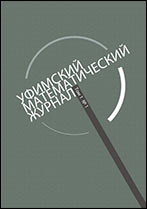|
This article is cited in 1 scientific paper (total in 1 paper)
On preservation of global solvability of controlled second kind operator equation
A. V. Chernovab
a Lobachevsky State University of Nizhni Novgorod, Gagarin av. 23, 603950, Nizhni Novgorod, Russia
b Nizhny Novgorod State Technical University named after R.E. Alekseev,
Minin str. 24, 603950, Nizhni Novgorod, Russia
Abstract:
For a controlled evolution second kind operator equation in a Banach space considered on a finite time segment, we obtain sufficient conditions for the preservation of global solvability under small (with respect to the right-hand side increment with a fixed state) control variations. In addition, we establish an estimate for the global solution increment under a control variation and conditions for uniqueness of the solution corresponding to an arbitrary fixed control. Most essential differences from former results on the preservation of global solvability of controlled distributed systems are as follows. A solution to the abstract equation representing an evolution controlled distributed system can be sought in arbitrary space $W[0;T]$ of time functions with values in a Banach space $X$ and not necessarily in the space of continuous functions with values in $X$ or in a Lebesgue space. An estimate for the solution increment under a control variation is also obtained with respect to the norm of the space $W[0;T]$. Moreover, the right hand sides of the partial differential equations associated with a controlled distributed system may include not only the function of state but also its generalized derivatives. As examples, we study the preservation of global solvability for the nonlinear Navier–Stokes system, the Benjamin–Bona–Mahony–Burgers equation, and also for certain strongly nonlinear pseudo-parabolic equations.
Keywords:
nonlinear evolution operator equation of second kind in a Banach space, preservation of global solvability, nonlinear Navier–Stokes system, Benjamin–Bona–Mahony–Burgers equation, strongly nonlinear pseudo-parabolic equations.
Received: 27.08.2019
Citation:
A. V. Chernov, “On preservation of global solvability of controlled second kind operator equation”, Ufa Math. J., 12:1 (2020), 56–81
Linking options:
https://www.mathnet.ru/eng/ufa503https://doi.org/10.13108/2020-12-1-56 https://www.mathnet.ru/eng/ufa/v12/i1/p56
|

| Statistics & downloads: |
| Abstract page: | 432 | | Russian version PDF: | 100 | | English version PDF: | 25 | | References: | 51 |
|




 Contact us:
Contact us: Terms of Use
Terms of Use
 Registration to the website
Registration to the website Logotypes
Logotypes








 Citation in format
Citation in format 
